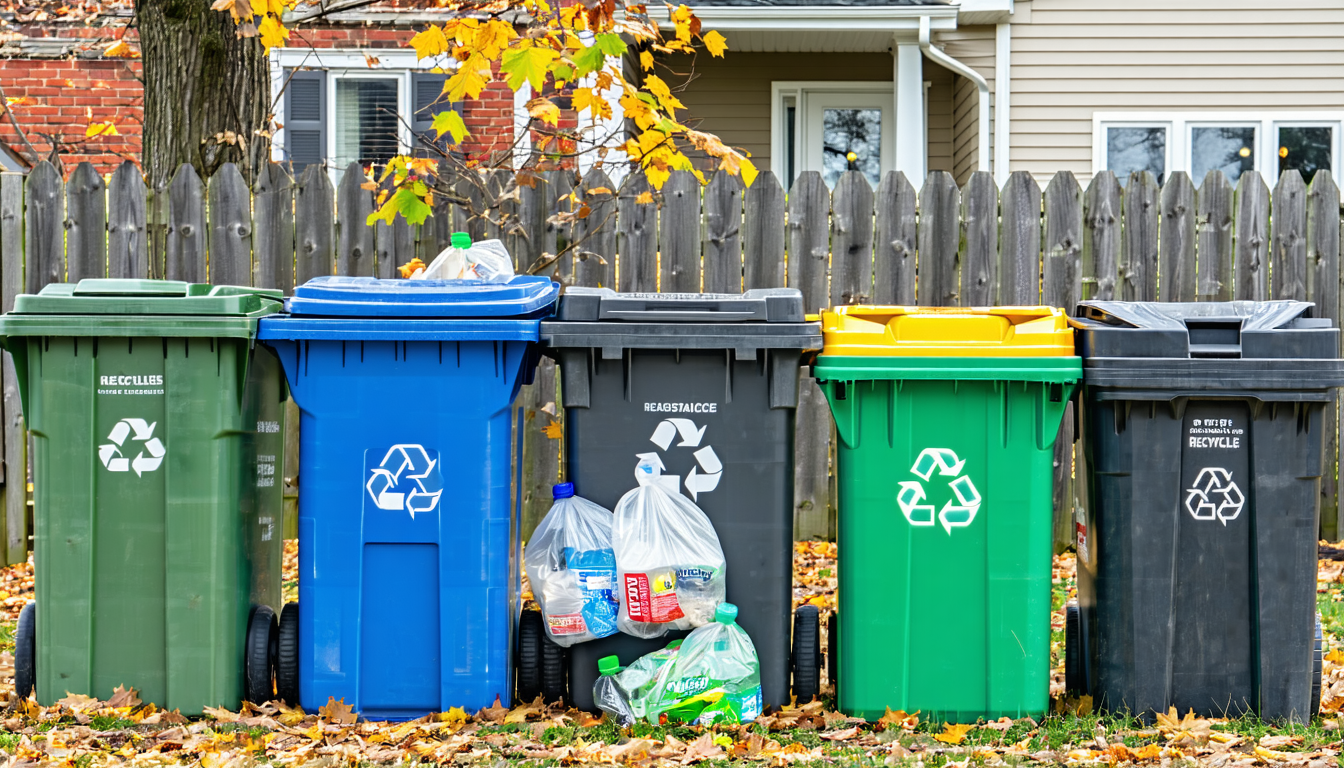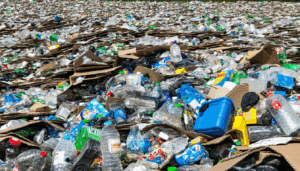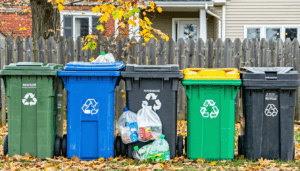In a significant push toward sustainability, major cities across the United States are revamping their residential recycling pickup programs, introducing innovative technologies and expanded services to boost participation rates. Municipal waste management departments are reporting a 15% increase in household recycling volumes over the past six months, as new initiatives take effect in metropolitan areas from coast to coast.
New Technologies Transform Curbside Collection
Waste management companies are deploying smart bins equipped with sensors to optimize collection routes and reduce operational costs. In Seattle, the municipal waste department has introduced RFID-tagged recycling containers that track household participation and contamination rates.
“These technological advancements allow us to provide more targeted education to residents who might be struggling with proper recycling practices,” said James Wilson, Director of Seattle’s Department of Public Utilities. “We’ve seen contamination rates drop by nearly 20% since implementing the smart bin program last quarter.”
Similar programs are rolling out in Denver, Chicago, and Boston, where city officials report that optimized collection routes have reduced fuel consumption by up to 30% while maintaining or improving service quality.
Financial Incentives Boost Participation Rates
Several municipalities have introduced pay-as-you-throw programs and recycling rebates to incentivize proper waste sorting. Philadelphia’s new RecycleRewards program offers residents up to $200 annually in tax rebates based on their recycling volume and quality.
“Financial incentives have proven to be extremely effective in changing behavior,” explained Dr. Maria Rodriguez, environmental economist at the University of Pennsylvania. “When residents see a direct financial benefit from their recycling efforts, participation rates typically increase by 25-40% within the first year.”
The city of Austin has taken a different approach, implementing a variable rate structure where households pay less for waste collection when they generate less landfill waste and more recyclables.
Expanded Materials Acceptance Addresses Consumer Confusion
One of the most significant developments in residential recycling pickup has been the expansion of accepted materials. Previously challenging items like plastic film, polystyrene, and certain mixed plastics are now being collected in select markets.
“Consumer confusion about what can and cannot be recycled has been one of the biggest barriers to effective recycling programs,” noted Thomas Greene, CEO of National Recycling Coalition. “By expanding accepted materials and providing clear, consistent messaging, we’re seeing contamination rates decline while capture rates for valuable materials increase.”
New York City recently expanded its curbside program to include all rigid plastics, simplifying messaging for residents who previously had to check resin identification codes before recycling plastic items.
Challenges Remain Despite Progress
Despite these advancements, industry experts acknowledge significant challenges. Fluctuating commodity markets continue to impact the economic viability of recycling programs, while labor shortages affect collection reliability in some regions.
“The economics of recycling remain challenging,” admitted Sarah Johnson, Sustainability Director for Waste Management Inc. “We’re working closely with municipalities to develop more resilient programs that can weather market fluctuations while maintaining service levels residents expect.”
FAQ: Residential Recycling Pickup
How often is recycling typically collected?
Most urban and suburban areas offer weekly or bi-weekly recycling pickup. Rural areas may have less frequent collection schedules or rely on drop-off centers.
What items are most commonly accepted in curbside recycling programs?
Paper, cardboard, aluminum cans, steel cans, and plastic bottles are universally accepted. Glass acceptance varies by region, and plastic acceptance depends on local processing capabilities.
How can residents reduce contamination in their recycling bins?
Rinse food containers, keep materials dry, and follow local guidelines about acceptable materials. When in doubt, check with your local waste management authority rather than “wishcycling” items that might contaminate the recycling stream.
Are there penalties for improper recycling?
Some municipalities have implemented warning tags or may refuse to collect heavily contaminated bins. A few cities have introduced fines for repeated contamination issues, though most focus on education rather than penalties.


